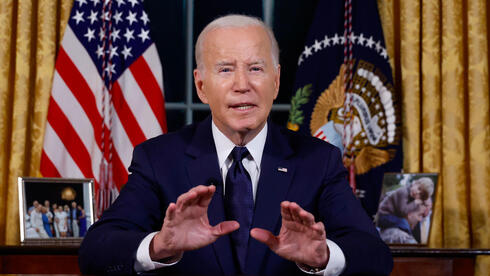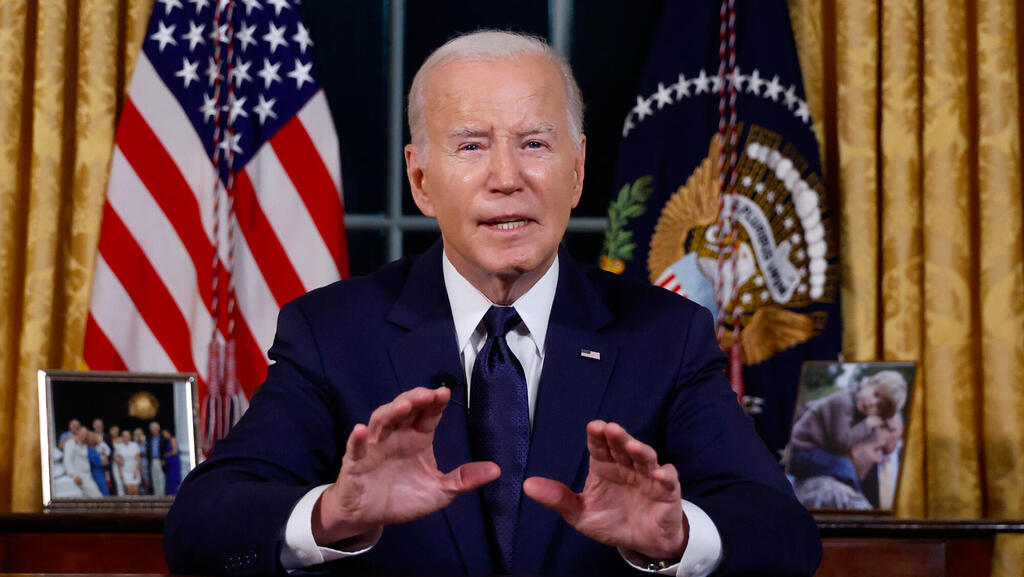
Analysis
US attempts to curb Chinese AI are backfiring
Tech giants such as Alibaba, Tencent and Baidu are far from enthusiastic about Nvidia's weakened chips produced especially for the Chinese market. As a result, they have reduced imports from the US and are transferring orders of advanced chips to local developers such as Huawei
When it comes to artificial intelligence (AI) chips, Nvidia reigns supreme. The H100 chip was one of the most sought-after technological products in the industry in 2023, and helped launch the company to a value of more than a trillion dollars. The H200 chip that it unveiled in November is designed to maintain its leadership this year as well. Every AI company in every country in the world wants Nvidia's chips, and sometimes the demand significantly exceeds the supply. Every country in the world, except China, where sanctions by the Biden administration prevent the company from exporting its most advanced chips.
Nvidia tried to deal with the export restrictions by developing and marketing a weakened version of the powerful chip, but the Chinese technology giants were not enthusiastic, preferring instead to purchase chips developed and manufactured locally by Huawei. The possible result: the efforts of the United States to weaken the chip and artificial intelligence industry in China will actually lead to its strengthening.
It's been more than a year since the White House openly began working to prevent China and Chinese companies from acquiring the ability to access the most advanced chips and technological capabilities. Since the fall of 2022, this has included a ban on the export of advanced chips as well as on the export of machines used for their production. The Biden administration recognized the importance of developing artificial intelligence and the need for dedicated and powerful chips for this purpose, and limited the export of high-performance chips that can be used to develop AI systems. Nvidia, in response, developed a limited version of the H100, called A100, and successfully marketed it in China.
In October 2023, after recognizing that Nvidia's chips allow AI companies in China to maintain a fast and competitive pace of development, the Biden administration tightened the restrictions and also banned the export of the weakened chips. That led to Nvidia developing even more weakened versions, which meet the requirements of the new restrictions, but this time the reaction of the technology giants in China was lukewarm at best, leading them to turn instead to local alternatives. According to a report by the Wall Street Journal, companies such as Alibaba, Tencent, Baidu and ByteDance (the owners of TikTok) have been testing the weakened chips since November, and told the company that they intend to order a much smaller amount this year compared to the original plan. The chip provided good capabilities compared to local chips, but in order to achieve an adequate performance, a larger number of chips were needed compared to the A100, which increased the companies' costs.
Sources told the newspaper that the companies instead plan to transfer the orders for the advanced chips to local developers such as Huawei, or expand the investment and reliance on chips they are developing themselves. In the longer term, the sources say, the companies estimate that they will no longer be able to rely on Nvidia, in light of the White House's intention to periodically tighten export restrictions to China, and are adapting their business strategy to a future without Nvidia.
In the immediate term, this is not expected to affect Nvidia's revenues, which is also having difficulty meeting global demand and will not have difficulty finding alternative buyers for the Chinese companies. However, in the long term, the company may suffer a significant blow that will manifest itself in a slowdown and perhaps even a decrease in revenues, since traditionally, about a fifth of its revenues come from China.
One company that is already benefiting from the situation is Huawei, whose chips, according to experts, are able to provide results equivalent to those of Nvidia when it comes to less complex training tasks of AI models. In 2023, Huawei received 5,000 orders for the Ascend 910B chip, which is considered the best local alternative to Nvidia's A100.
China Telecom purchased Huawei AI servers worth $390 million in October. Huawei, at the same time, is increasing its development efforts and is expected to introduce a new high-performance AI chip in the second half of the year. The company has already proven that it can provide a solution to the restrictions of the United States, unveiling last year smartphones that provide fifth generation capabilities without American chips and thus bypassed restrictions on communication chips imposed by the Trump administration in 2019.
Huawei, and the chip industry in China in general, have huge gaps to close on companies like Nvidia and Intel, or geographically closer players like the Taiwanese TSMC and the South Korean Samsung. But they have their back against the wall, with the only other choice being to withdraw from the AI race, quantum computing and other future technologies that are based on advanced and high-performance chips.
China may not currently have the knowledge or even the necessary equipment to catch up, but it has the money and the determination. These may not guarantee success, but certainly make it possible. The Biden administration's plan to limit China's access to high-performance chips may be providing some short-term gains, but at the same time it is already promoting the local chip industry, and in the longer term could lead to the development of the capabilities that the administration was aiming to deny the Chinese.














